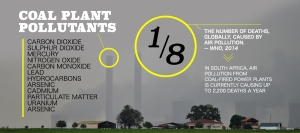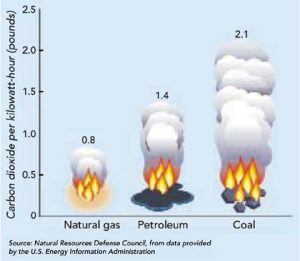Over 21,000 People Sign #SayNOtoCoalJA Petition Opposing Coal-Fired Power Plant in Jamaica
In recent weeks, I have been sharing information on the incredibly harmful health and environmental effects of coal-fired power plants (including the huge amounts of waste it produces) – whether from the pollution of air, water and land or from the high carbon emissions contributing to climate change. (There’s a good website from the Union of Concerned Scientists, which is U.S.-based but includes a lot of useful information on coal and on renewable energy sources, here: http://www.ucsusa.org/clean_energy#.WBu0D0vQPpA)
 This little graphic from Greenpeace shows the toxic chemicals that pollute air, land, sea and freshwater due to pollution from coal power. Air pollution kills millions worldwide every year, according to the World Health Organization (WHO).
This little graphic from Greenpeace shows the toxic chemicals that pollute air, land, sea and freshwater due to pollution from coal power. Air pollution kills millions worldwide every year, according to the World Health Organization (WHO).In just two weeks, the Jamaica Environment Trust (JET) collected over 21,000 signatures to its online petition, asking the Jamaican Government not to turn to the 19th century coal as a fuel source for industrial development. Here is JET’s press release:
November 3, 2016
On Friday, November 4, the Jamaica Environment Trust (JET) will deliver a petition signed by over 21,000 people to Prime Minister Andrew Holness, calling on the Government of Jamaica to say no to coal as a source of energy for Jamaica. The petition was posted on the change.org petition website and promoted through social media between October 14 and November 1. It attracted an overwhelming amount of both local and international support.
At a press conference on 28 July 2016, the Jamaican Government announced the sale of the old Alpart bauxite plant at Nain in St. Elizabeth to Jiuquan Iron & Steel (Group) Company Limited (JISCO) as well as a US$2 billion investment in an industrial zone, powered by a 1000 megawatt (MW) coal-fired plant, creating 3,000 jobs. A 1000MW coal-fired plant exceeds Jamaica’s entire current generating capacity which is presently about 850MW. Since then, the Government of Jamaica has not spoken in any detail on the matter, except to say that no final decision has been taken.
The petition requests that the GOJ refuse the proposal to construct a 1000MW coal-fired power plant in Jamaica and continue the transition to a new energy future for Jamaica as outlined in many government documents, which emphasize energy conservation, renewables and liquefied natural gas (LNG) as a transitional fuel for Jamaica. “Coal-fired plants have several negative impacts on public health and the environment,” said Diana McCaulay, JET’s CEO. “Coal plant emissions cause respiratory illness in humans, and affect the environment by creating acid rain and contributing to global climate change.”
 Amount of carbon dioxide (CO2), an important greenhouse gas, that is emitted into the atmosphere per unit of electrical energy produced is plotted for three fossil fuels. Burning coal emits more CO2 per unit energy than any other fuel. Nuclear power, as well as hydroelectric and other renewable sources, emit little or no CO2.
Amount of carbon dioxide (CO2), an important greenhouse gas, that is emitted into the atmosphere per unit of electrical energy produced is plotted for three fossil fuels. Burning coal emits more CO2 per unit energy than any other fuel. Nuclear power, as well as hydroelectric and other renewable sources, emit little or no CO2.Recent comments by Custos of Manchester, the Hon Sally Porteous, as reported in the Gleaner on Thursday November 3, imply that a coal-fired plant would be no worse than one powered by oil in terms of its emissions. “Coal, in fact, is the dirtiest of the fossil fuels,” said Ms McCaulay. “It emits far greater quantities of carbon dioxide than other fossil fuels.” Carbon dioxide emissions represent the largest share of greenhouse gas (GHG) emissions, which are blamed for global warming trends associated with climate change. According to the U.S. Environmental Protection Agency, 59% of all sulphur dioxide and 18% of all oxides from nitrogen emissions come from coal-fired power plants.
In April 2015, Jamaica was among 150 nations to sign the Paris Agreement on Climate Change, which signaled the commitment of the international community to combat climate change and its wide-ranging effects.
“The #SayNOtoCoalJA petition also calls on the GOJ to abide by their commitments to the Paris Agreement, which requires phased reduction of GHGs. The building of the proposed coal fired plant would be in direct contradiction to that agreement,” said McCaulay.
Coal fired power plants also typically emit a host of other pollutants besides carbon dioxide. The possible mercury, lead, arsenic, sulphur dioxide, dust and soot emissions associated with a coal-fired power plant also have significant impacts on public and environmental health.
Contact:
Diana McCaulay
Chief Executive Officer
Jamaica Environment Trust
(876) 469-1315
or
Suzanne Stanley
Deputy Chief Executive Officer
Jamaica Environment Trust
(876) 470- 7580
![]()